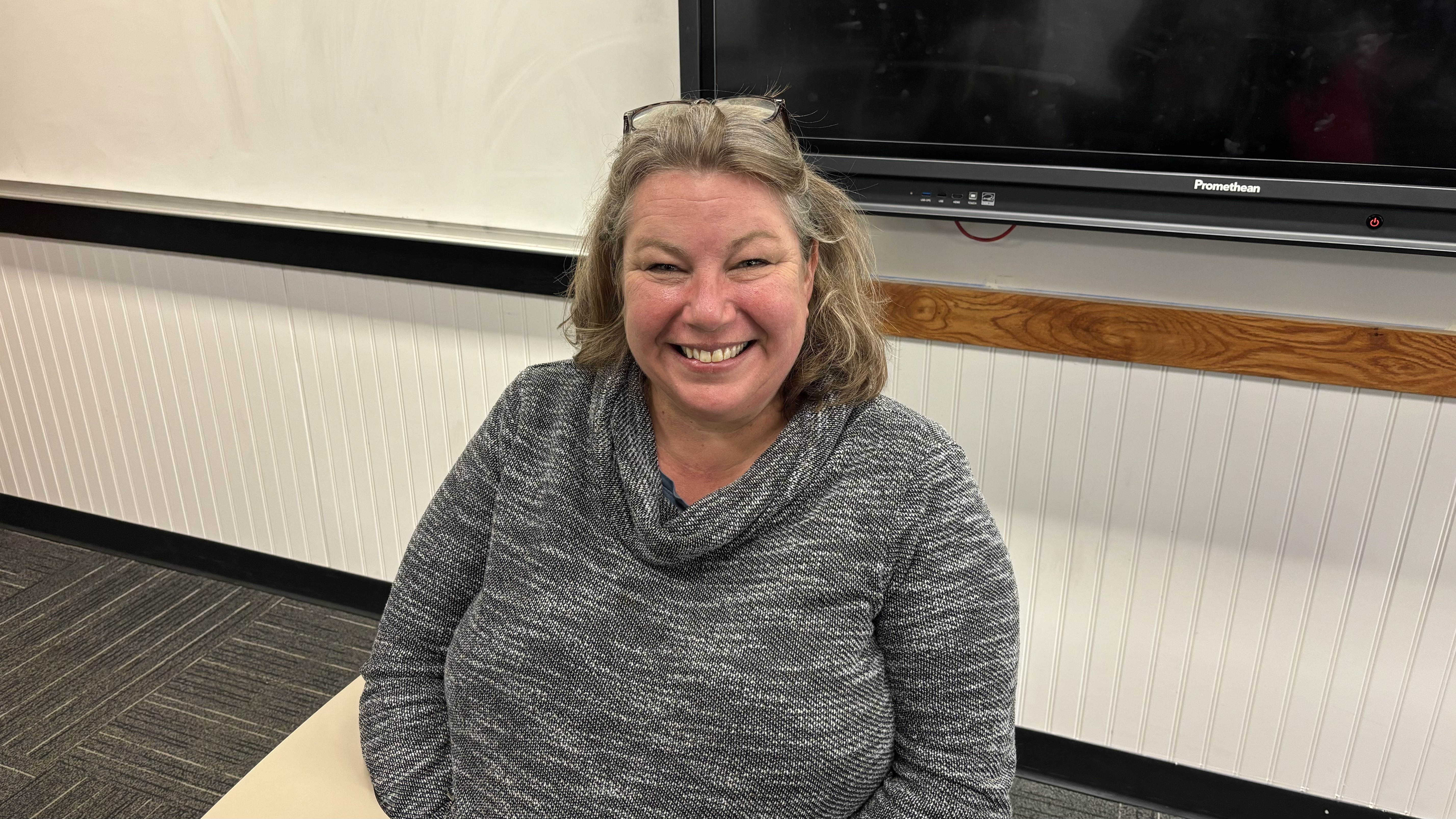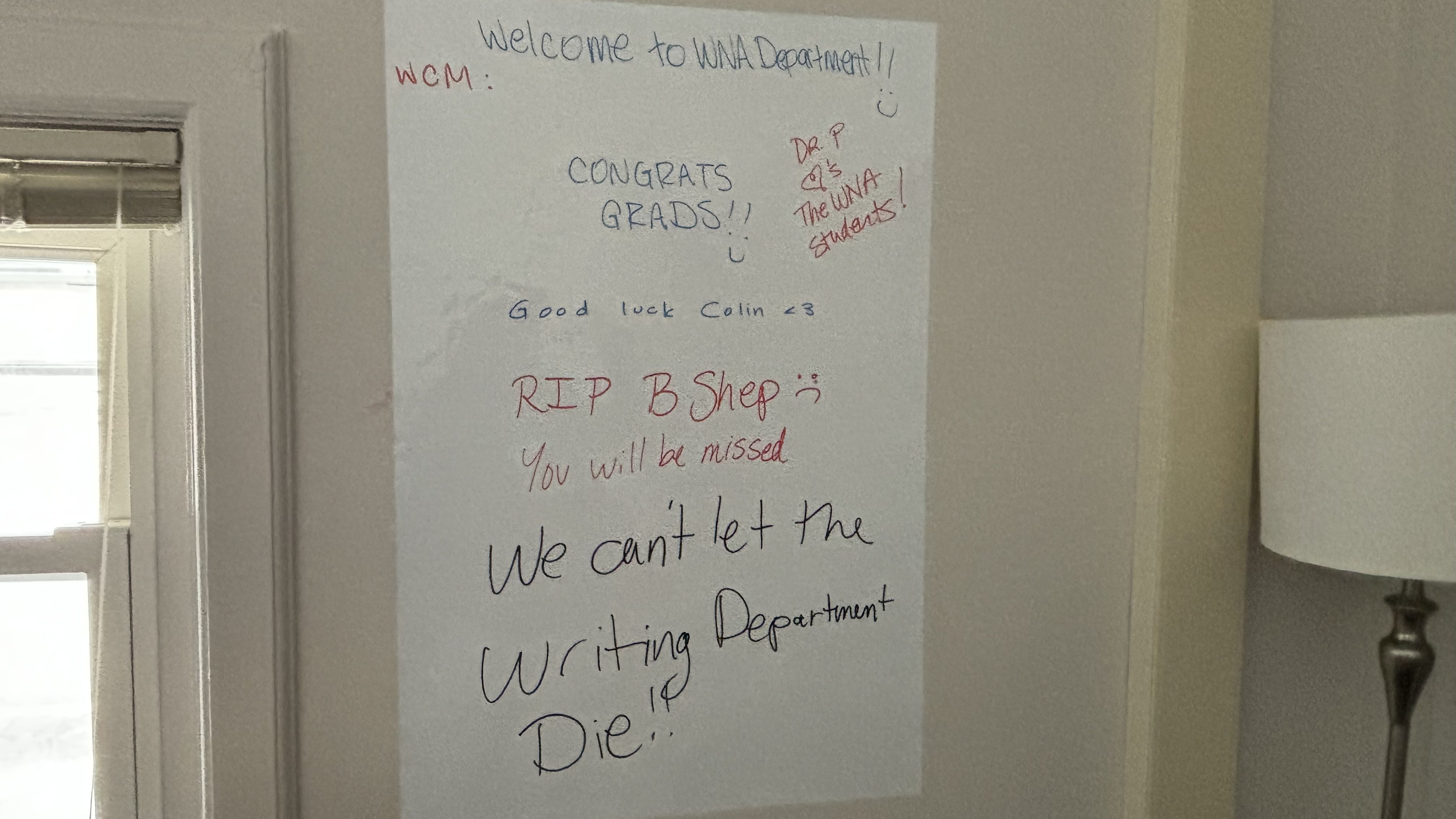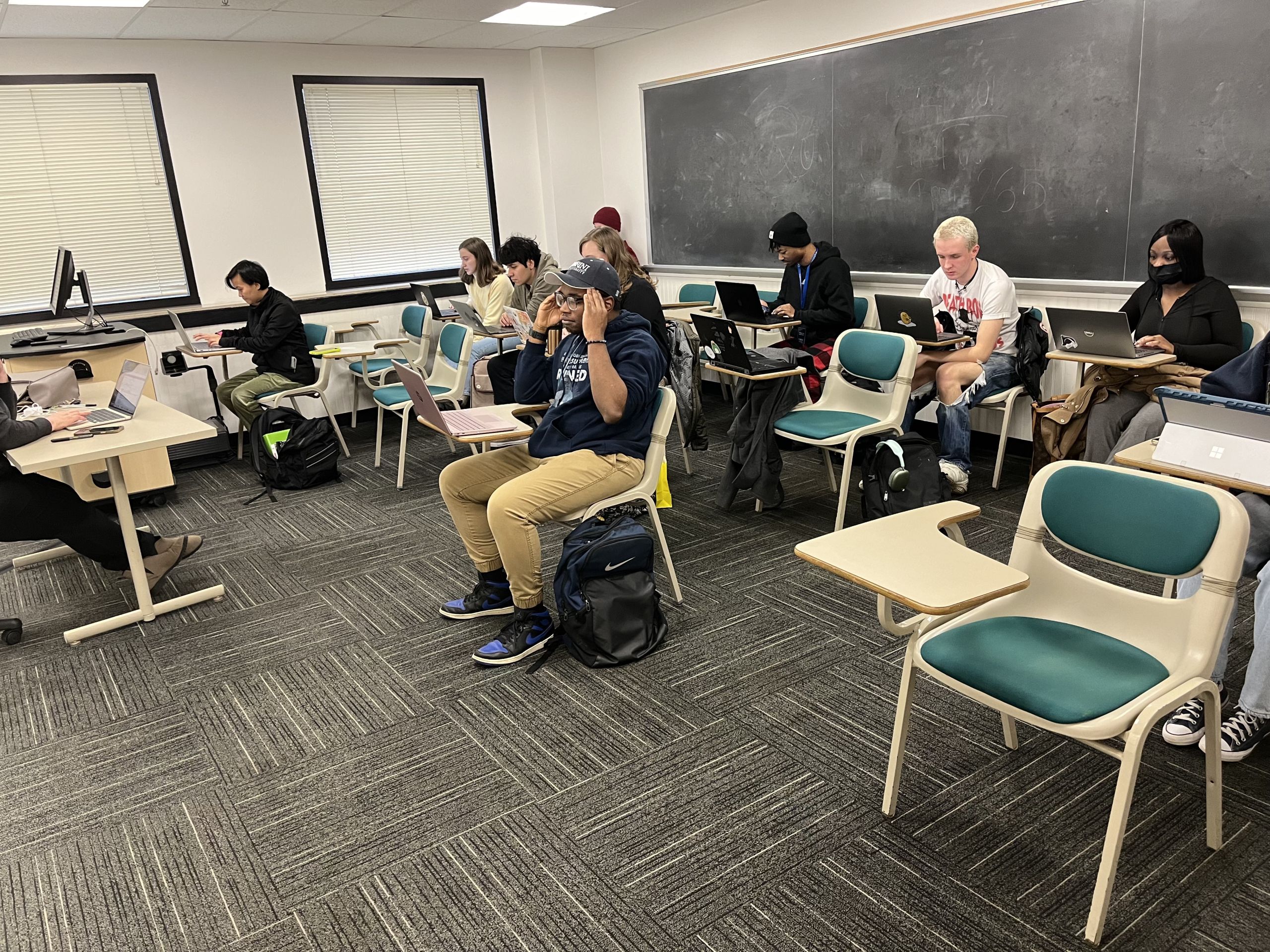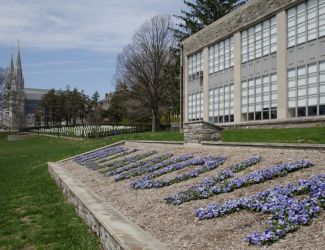For this spring semester, the writing and narrative arts (WNA) department is concluding with only one course for writing majors.
The start of a small department
As many know, the WNA department is for students working toward a career in writing and other narratives forms including film, literature, and theater. It gives students a chance to find their identity and voice through their craft.
Before these disciplines combined under one heading, WNA was a simple English department.

Amy Persichetti, WNA chair and associate professor, said, “We started off as an English department with four faculty members. We were making cuts to faculty because we didn’t have enough money to sustain them, so our department was just getting smaller.”
Persichetti continued, “We were shifting from teaching secondary education teachers and pre-service teachers, which is literature based learning. There weren’t any more of those majors left, so the major was changed into writing. The change helped us streamline and make decisions on the department and faculty.”
The WNA department took a hard hit when two writing professors, Bret Shepard and Paul Wright, left.
The hard impact on the writing department
Being in the writing major, keeping it together is the hard part.

Persichetti said, “Working in higher ed, the humanities are particularly hard hit, which is the saddest thing in the world, because education has become really expensive. People think as a writing major, we are sitting around, singing, and holding hands, when that is not the case. We have these applicable skill sets that we’re working on. It’s hard to justify a poetry class for $40,000 a year when humanities are collapsing in education.”
With WNA providing only one course, it poses a major obstacle for writing students that will not graduate at Cabrini.
Persichetti spoke on the reality of the closure and how positivity can still be found in her students. She continued, “We’ve tried everything that we can to minimize the student impact and to optimize the student experience, but there’s just a reality behind it. You’re attending the closing school and a dying department and it’s a sad thing. So, I think that the more we kind of admit that’s what it is. The more we can work to find our own paths through it because it’s a process that has to be rightly unfolded.”
Departmental concerns
With one course and a closing school, writing majors are impacted by the changes as well.
Carina Shandy, senior WNA major, said, “It was surprising at first because I believe we expected more of variety of courses offered for the major.”
In WNA, the course gives writing students the opportunity to help construct its literacy magazine. It helps students become editors but also look into different writing skills they never tried or seen before.
Sara Hanley, another senior WNA major, said, “It sucks to see the department only have one course, especially when writing students may need to take more writing courses and it is only the Woodcrest course.”
For readers, The Woodcrest magazine is a student run literary and art publication for Cabrini where they would accept submissions from students and non-students to create discourse through poetry, fiction, and non-fiction writing, as well as visual art.
A strong community
Even with all of the troubles for the department, the writing community always sticks together. Persichetti said, “the nice thing about the writing program is that we’re so community driven that when you walk into a classroom, it’s excitement all around. Everything is exploding around us but what’s happening in here is still pretty great.”
Emily Lichius, sophomore WNA major, said, “I believe we care for each other more than the school cares to pay attention to the writing department, and that’s okay.” She added, “I realized that it was a small department, but it was kind of like a family and we treated each other very nicely and saw each other as friends.”






